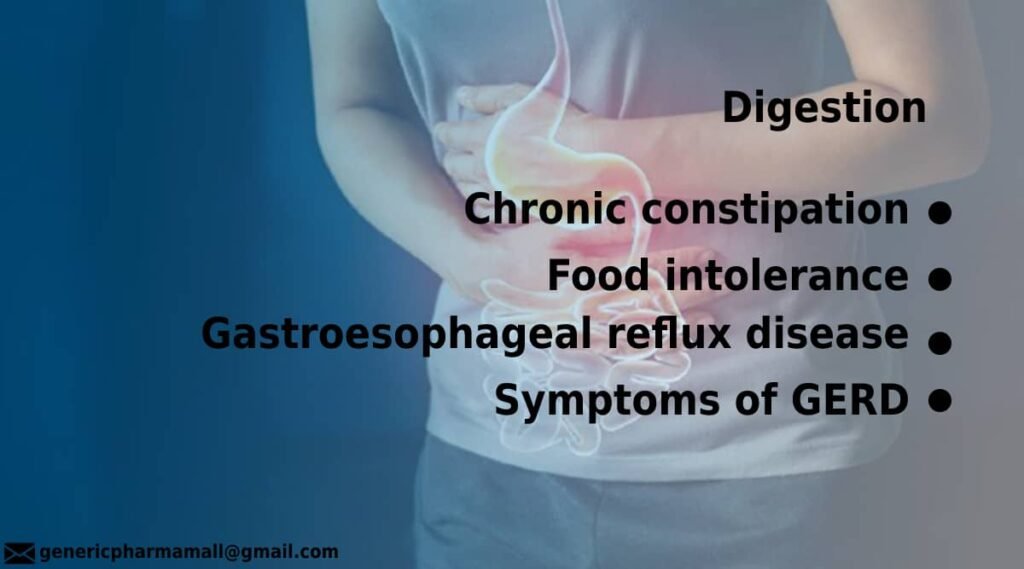No products in the cart.
Clarivo, HaruTheme, Personal Care
What’s wrong with digestive system?
Digestive system
Digestive system is a complicated and vast part of the body. Continue from mouth to anus. Digestion helps your body absorb essential nutrients and is responsible for eliminating waste.
Digestive issues can mean more than just unwanted symptoms. This is Minor problems left to untreated can lead serious chronic illnesses.
There are so many different types of digestive problems that you can wrongly ignore them. It is important to understand common digestive issues and first aid symptoms. Then you will know when to see a doctor.
Chronic constipation
Chronic constipation indicates a problem with eliminating toxins. This often happens when the colon is unable to pass through the rest of the digestive tract or to travel. Abdominal pain and swelling may occur, as well as less bowel movement (more painful than usual).
Chronic constipation is a common digestive problem in the United States. Constipation can be suppressed by eating enough fiber, water, and exercise. Medication can also help in severe cases.
Food intolerance
Food intolerances occur when certain foods cannot be tolerated by digestion. Unlike food allergies, which can cause hives and breathing problems, intolerances only affect digestion.
Symptoms of food intolerances include:
Swelling and / or cramps
Diarrhea
Irritability
gas
Vomits
Food intolerance are usually diagnosed on the basis of a food diary. This will help you determine which food is causing your symptoms by recording what and when you eat.
It is an autoimmune disease. Abdominal disease is a type of food intolerance. Consuming gluten (a protein found in wheat, barley and rye) causes digestive problems. People with celiac disease should follow a gluten-free diet to minimize symptoms or damage to the small intestine.
Gastroesophageal reflux disease
Heartburn sometimes occurs in many adults. It occurs when stomach acid causes chest pain and a burning sensation typical of the esophagus.
If sinuses occur frequently, you may have gastroesophageal reflux disease (GERD). These frequent episodes can interrupt your daily life and damage your esophagus.
Symptoms of GERD include:
Chest discomfort
Dry cough
Sour taste in the mouth
Burning throat
Difficulty swallowing
You may need medication to relieve heartburn. Damage to the esophagus makes swallowing difficult and can confuse the rest of the digestive system.
Inflammatory bowel disease
Inflammatory bowel disease (IBD) is a type of chronic edema. One or more parts of the digestive tract are affected.
There are two types of IBD:
Crohn’s disease: affects the entire gastrointestinal (GI) tract, but most commonly affects the small and large intestines.
Ulcerative colitis: affects only the large intestine.
IBD can cause general digestive problems such as stomach pain or diarrhea. Other symptoms include:
Boredom
Incomplete bowel movement
Loss of appetite and consequent weight loss
Cold dessert
Rectal bleeding
It is important to diagnose and treat IBD as soon as possible. In addition to comfort, damage to the digestive tract can be reduced through prompt treatment.
Possible serious condition
A gastroenterologist is a doctor who specializes in the diagnosis and treatment of diseases of the digestive system. Make an appointment if your digestive problems persist. Several signs may indicate that you have a more serious and urgent medical problem. These are the signs:
I was bloody Persistent vomiting
Severe abdominal cramps
sweat
Sudden and unintentional weight loss
These symptoms can be symptoms of infection, gallstones, hepatitis, bleeding, or cancer.

